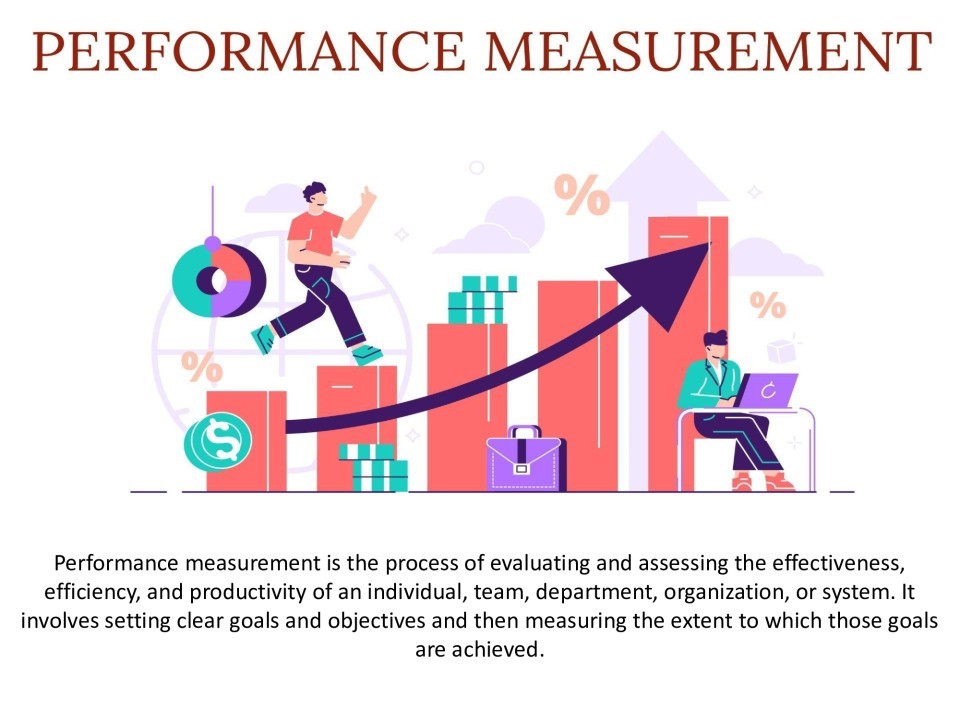Performance measurement systems play a vital role in modern organizations, offering a framework to assess and enhance efficiency. They allow businesses to align their strategies with key performance indicators (KPIs), ensuring that goals are met efficiently. Today, companies rely on performance measurement systems to track progress, optimize operations, and make data-driven decisions. These systems are designed to monitor various aspects of a business, providing a clear picture of whether the organization is meeting its strategic objectives.
The Importance of Measuring Performance
Performance measurement systems are essential for organizations that strive for continuous improvement. These systems provide a structured approach to assessing both individual and organizational performance. As businesses become more complex, measuring performance help ensure that all parts of the organization work together towards common goals. Moreover, with the rise of big data, these systems have evolved to provide more granular insights, making it easier to identify areas needing improvement.
Measuring performance enable companies to not only track but also benchmark their performance against industry standards. This process helps businesses understand where they stand in comparison to competitors. It also allows them to identify gaps in performance and develop strategies to address them. For instance, many companies use performance measurement systems to assess their customer service, sales performance, or operational efficiency. By setting specific benchmarks and tracking performance over time, businesses can achieve continuous growth and improvement.
In addition, performance measurement systems enhance accountability within organizations. When employees know that their performance is being monitored, they are more likely to stay focused on their goals. This is especially true in team-based environments, where the performance of one employee can directly impact the overall success of the team. With regular performance reviews, managers can provide feedback and guidance to ensure that employees remain aligned with company objectives.
Components of an Effective Performance Measurement System
An effective performance measurement system consists of several key components, all of which must work together seamlessly. First, businesses must establish clear goals and objectives that align with their overall strategy. These goals should be specific, measurable, attainable, relevant, and time-bound (SMART). The success of any performance measurement system depends on the clarity and relevance of the goals it seeks to achieve.
Next, performance indicators must be selected to track progress toward those goals. Performance indicators are measurable metrics that reflect the effectiveness of various business activities. They are typically divided into two categories: lagging indicators and leading indicators. Lagging indicators measure past performance, while leading indicators provide insights into future outcomes. Both types of indicators are essential for understanding how well a business is performing in real time.
Data collection is another critical component of measuring performance. For a system to be effective, it must gather accurate and timely data. Many organizations invest in automated data collection tools that reduce human error and improve the reliability of the data. With accurate data in hand, businesses can analyze trends, identify patterns, and make more informed decisions.
Lastly, regular reporting and analysis are crucial to maintaining the effectiveness of a performance measurement system. Reports should be generated at predetermined intervals, allowing management to review progress and adjust strategies as needed. These reports provide valuable insights into areas of the business that require attention or investment. Without regular analysis, even the best performance measurement systems lose their value over time.
How Performance Measurement Systems Drive Strategic Decision-Making
Performance measurement systems offer numerous benefits when it comes to strategic decision-making. With these systems, decision-makers have access to a wealth of data that allows them to make more informed choices. This data-driven approach eliminates guesswork and ensures that decisions are based on factual evidence rather than intuition.
One of the primary advantages of performance measurement systems is their ability to provide real-time feedback. This feedback enables companies to quickly identify issues and take corrective action before they escalate. For example, if sales are declining in a specific region, a performance measurement system can alert management to the problem, allowing them to investigate and implement a solution.
Additionally, performance measurement systems help businesses identify trends that may impact future performance. By analyzing historical data, companies can forecast future demand, identify seasonal trends, and make adjustments to their strategies. This proactive approach to decision-making helps businesses stay ahead of the competition and adapt to changing market conditions.
Furthermore, performance measurement systems can improve resource allocation. By identifying the most profitable areas of the business, companies can allocate resources more effectively. This ensures that high-priority projects receive the attention and investment they need to succeed. In contrast, underperforming areas can be reevaluated or restructured to improve efficiency.
Implementation Challenges
Despite their many advantages, implementing performance measurement systems is not without challenges. One of the most common difficulties is selecting the right performance indicators. If the indicators chosen do not accurately reflect the organization’s goals, the system will provide misleading information. This can lead to poor decision-making and wasted resources.
Another challenge is ensuring data accuracy. Performance measurement systems rely on accurate data to generate meaningful insights. Inaccurate or incomplete data can skew results, making it difficult to identify real issues. To overcome this challenge, businesses must invest in reliable data collection tools and establish protocols to ensure data integrity.
Moreover, the complexity of performance measurement systems can overwhelm some organizations. For smaller businesses or those without dedicated resources for data analysis, managing a comprehensive performance measurement system may seem daunting. In such cases, companies may opt to start with a simplified system and gradually expand as they become more comfortable with the process.
Lastly, ensuring that employees understand and embrace the performance measurement system is crucial for its success. If employees feel that the system is being used to unfairly criticize their work, they may resist its implementation. To address this, businesses must focus on clear communication and demonstrate how the system benefits both the organization and its employees.
The Future of Performance Measurement Systems
As technology continues to evolve, so too will performance measurement systems. The rise of artificial intelligence (AI) and machine learning promises to revolutionize how businesses measure performance. These technologies will enable performance measurement systems to analyze vast amounts of data more quickly and accurately than ever before. This will allow businesses to identify trends and opportunities that may have previously gone unnoticed.
In addition, performance measurement systems are likely to become more integrated with other business tools. This integration will enable organizations to take a more holistic approach to performance management, with data flowing seamlessly across departments. By breaking down silos, businesses can gain a more comprehensive understanding of their overall performance.
Another trend to watch is the increased focus on employee engagement and well-being. Future performance measurement systems will likely place greater emphasis on tracking employee satisfaction and mental health. This shift reflects how businesses increasingly recognize the close connection between employee well-being and overall business performance.
Performance measurement systems are indispensable tools for organizations seeking to improve efficiency, drive strategic decision-making, and achieve long-term success. By establishing clear goals, selecting the right performance indicators, and collecting accurate data, businesses can gain valuable insights into their operations. While challenges exist in implementing these systems, the benefits far outweigh the difficulties. As technology advances, performance measurement systems will continue to evolve, offering even greater opportunities for businesses to optimize their performance.


